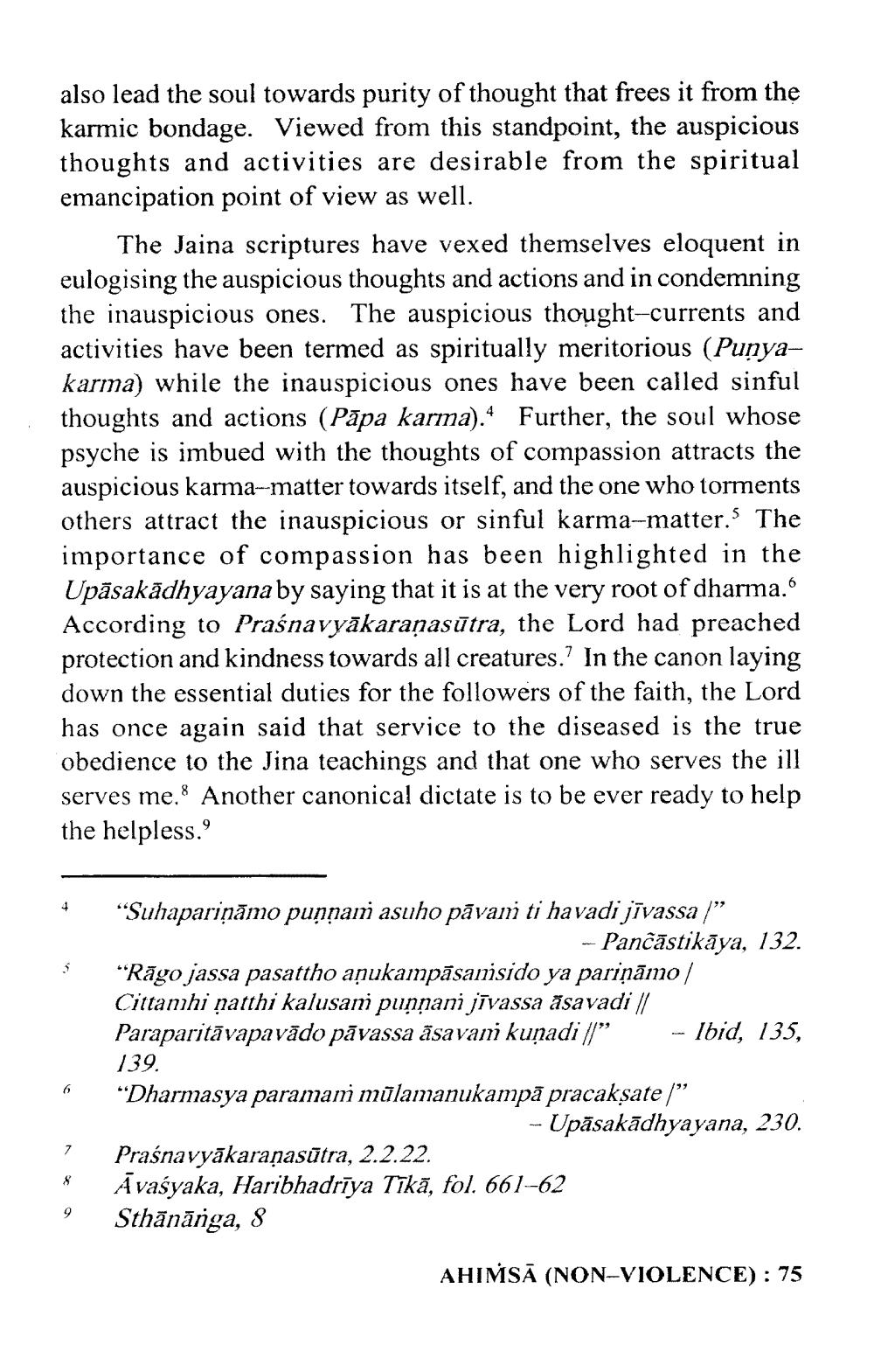________________
also lead the soul towards purity of thought that frees it from the karmic bondage. Viewed from this standpoint, the auspicious thoughts and activities are desirable from the spiritual emancipation point of view as well.
The Jaina scriptures have vexed themselves eloquent in eulogising the auspicious thoughts and actions and in condemning the inauspicious ones. The auspicious thought-currents and activities have been termed as spiritually meritorious (Punyakarma) while the inauspicious ones have been called sinful thoughts and actions (Pāpa karma). Further, the soul whose psyche is imbued with the thoughts of compassion attracts the auspicious karma-matter towards itself, and the one who torments others attract the inauspicious or sinful karma--matter. The importance of compassion has been highlighted in the Upāsakādhyayana by saying that it is at the very root of dharma. According to Praśnavyākaranasūtra, the Lord had preached protection and kindness towards all creatures.? In the canon laying down the essential duties for the followers of the faith, the Lord has once again said that service to the diseased is the true obedience to the Jina teachings and that one who serves the ill serves me. Another canonical dictate is to be ever ready to help the helpless.
“Suhapariņāmo puņnam asuho pāvani ti havadi jīvassa /"
- Pančāstikāya, 132. "Rāgo jassa pasattho aņukampāsanisido ya pariņāmo/ Cittanhi natthi kalusam punộani jīvassa äsavadi // Paraparitāvapavādo pāvassa ásavani kunadi //" - Ibid, 135, 139. “Dharmasya paramam mūlamanukampā pracaksate /
- Upāsakādhyayana, 230. Praśnavyākaranasūtra, 2.2.22. Āvaśyaka, Haribhadrīya Tīkā, fol. 661-62 Sthānārga, 8
AHIMSĀ (NON-VIOLENCE) : 75




